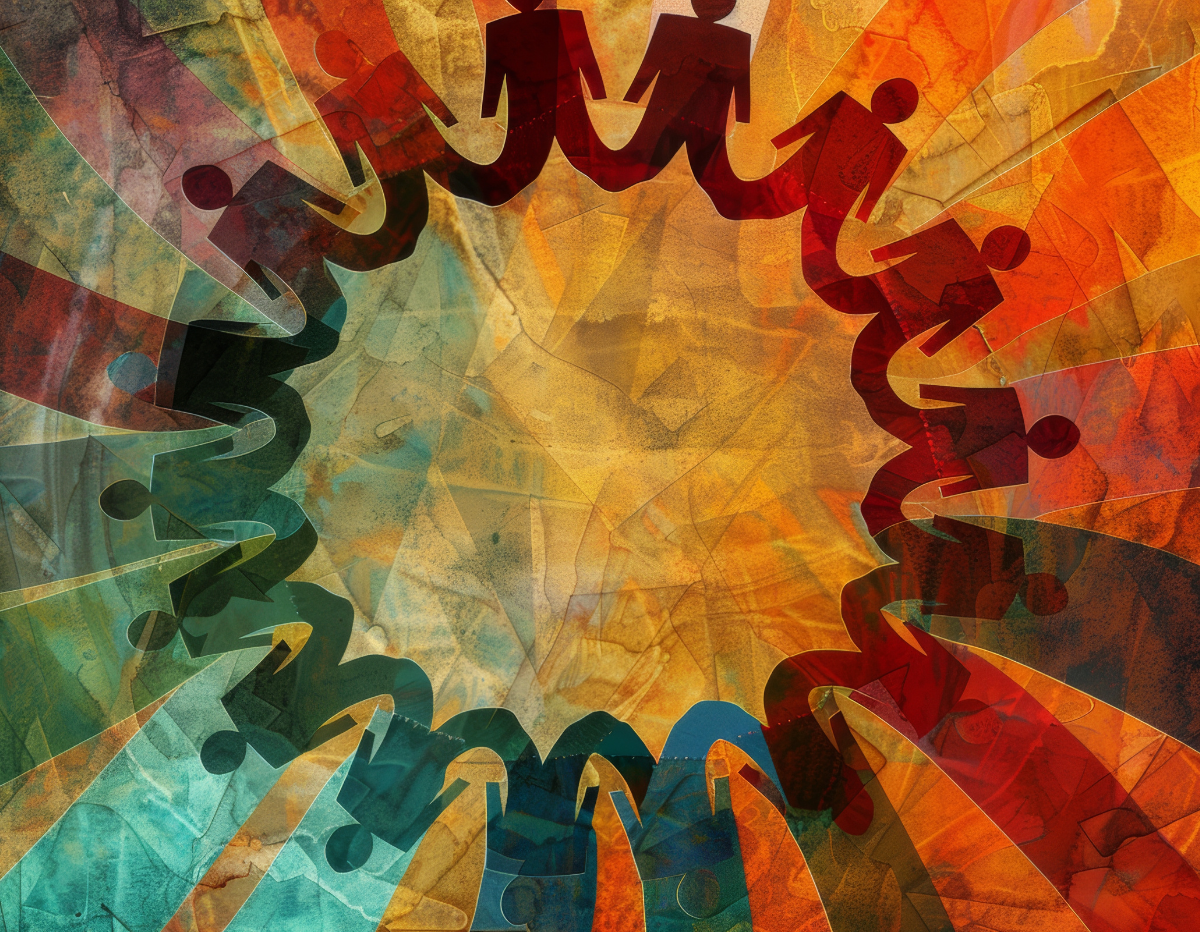
At the Restorative Justice Project of EJUSA, we understand that the strength of our work lies not in individual efforts but in the collective power of our team and partners. Our approach is deeply rooted in collaboration, where each aspect of our work is interconnected and mutually reinforcing, creating a holistic and transformative impact across communities nationwide.
Building Restorative Justice Diversion (RJD) Programs and Partnerships
We provide training, technical assistance, and peer-to-peer support to communities across the nation interested in building front-end restorative justice diversion programs. With our technical assistance, community based organizations develop diversion partnerships with local criminal and youth legal system agencies that refer cases for restorative justice in place of criminal prosecution. To do so, we support the creation of data-driven Memorandums of Understanding, which clearly outline diversion criteria and partnership responsibilities. We assist in creating plans for fundraising, staffing, case referral, communications, and data collection. We deliver targeted training to both community-based organizations and their system partners, ensuring all parties understand their roles in the program. We, even after the program’s launch, continue to offer support by troubleshooting case-specific and general program operations, helping to ensure the long-term success and effectiveness of these critical initiatives.
Transformative Learning Spaces
Our team is deeply committed to creating transformative and experiential learning spaces for our partners in this work as they seed a nationwide movement for restorative justice. We work to continuously develop and strengthen our curriculum offerings and facilitation skills and ensure both are grounded in our core learning values. These values include orienting around collective wisdom, as well as centering radical belonging and accessibility. We provide a series of restorative justice facilitation trainings to our community-based organization partners, beginning with community circle keeping knowing that community and relationship building is the foundation to restorative justice, and then followed by restorative approaches to harm and restorative community conferencing. We also provide trainings for our referring system partners on restorative pathways to healing, as well as operationalizing diversion and referral processes. We know that we learn and grow best in community where we feel fully seen, heard, and supported – this is our goal for each and every learning space we hold.
Nurturing a National RJD Movement
We have the honor of bringing our partners together for peer learning through the National Restorative Justice Diversion Collaborative where folks working on RJD in their own communities can connect with others across the country. Together, they are able to share learned lessons, celebrate successes, troubleshoot challenges, and cultivate a movement for community-held justice, accountability, and healing. The collaborative generates space for deep connection for community based practitioners and system partners separately and creates opportunity for cross pollination amongst the two. The collaborative is seeding a transformative movement to actualize their vision of a future of justice and healing in communities across the nation. Through the Collaborative, we are gifted with the reminder of what transformative work is possible when none of us feel alone in it.
Advancing the Needs of the Restorative Justice Field
Building up restorative justice diversion as a sustainable community-held practice to address harm, promote accountability, and support healing requires us to do more than just develop RJD programs. With over a decade of learning alongside our partners across the country, it is evident that there is more need for the field to evolve to understand and address the key challenges and opportunities for RJD to exist as an effective and sustainable solution. To that end, we are working to ensure that the lessons we’ve learned are channeled into the areas where they can have the greatest impact.
We are supporting the development of policy coalitions that can identify and advocate for policies that help break down barriers to effective community-held restorative justice practices and ensure that all community members that desire restorative justice as a process to address harm are able to access it. We are working with academic and research spaces that are interested in studying and evaluating restorative justice practices to do so in a manner that uplifts RJ practitioners as experts and utilizes participatory research methods to account for and try to prevent the way that academic research disconnected from practice can actually hurt and limit the comprehensive work of restorative justice. We are seeking to advise funders and other partners about what we have learned about resourcing community-held RJD and supporting its ability to sustain and thrive. All together we are working on sharing and utilizing our lessons in the areas where they can influence efforts to nourish the fertile ground needed for restorative justice diversion to thrive.
At EJUSA, the Restorative Justice Project is more than the sum of its parts. Our work is a tapestry woven from the threads of each team member’s contributions, creating a stronger, more resilient fabric that supports the entire movement. By embracing collaboration and collective action, we are building a future where justice and healing are not just ideals but realities that can be achieved together.



